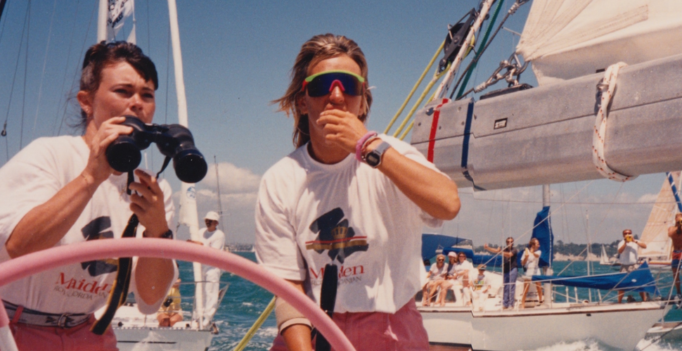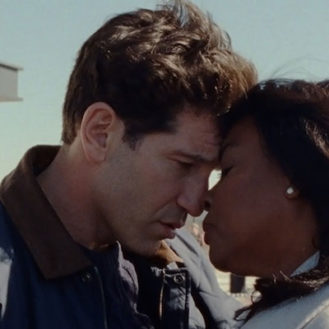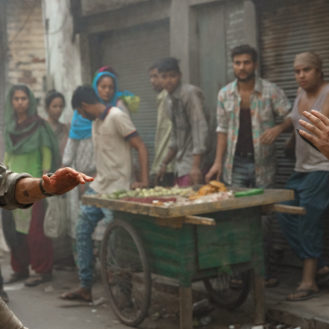By: Jolie Featherstone
Maiden opens in the middle of a cold and unforgiving ocean. Waves as tall as houses tumble and crash. A preternaturally calm voice is heard over the roar: “the ocean is always trying to kill you.” The roar continues. A storm brews in the increasingly agitated sky. “It doesn’t take a break.”
An energetic examination of a real-life underdog story, Maiden captivates with a personal and cinematic telling of an unprecedented crew embarking on one of the most arduous journeys in sports.
In 1989, the Whitbread Round the World Race (now known as the Volvo Ocean Race) was on the precipice of a tectonic shift. The race inducted a crew that looked very different than any crew it had ever seen. Indeed, much of the excitement surrounding this particular race was less focused on the death-defying journey about to be undertaken, than it was about who would be undertaking it. A young British sailor had the world’s eyes on their every move as they prepared to compete for their first time. Tracy Edwards, a twenty-something woman from England, put together the first crew comprised entirely of women to compete in the highly prestigious and male-dominated competition. In doing so, Edwards made history and defied critics the world-over by leading her crew in the longest and most severe competition of its kind.
Years prior, Edwards experienced grief and abuse as a young teen. Longing for freedom, she dropped out of high school and left her town to travel the world. During her travels, she took jobs on boats (frequently as a cook or an attendant) to learn the ropes of sailing. When she heard of the Whitbread Round the World yacht race, the seed was planted. Ever the determined spirit, she set her sights on competing and compiled her crew which consisted entirely of women. At the time, the mere idea of an all-female crew was unimaginable to the old-money boys’ club that characterized the international, open-ocean yacht racing scene. Competitors expressed doubt. Journalists ran bets that the crew would not finish the first leg. Sponsors avoided them like the plague. They feared that the crew would cause them bad publicity when they ‘inevitably’ failed or died while on course. None of these barriers deterred Edwards. Her response? “If you listen to everyone who tells you what you can’t do, what would human civilization have achieved?”
Maiden is as heart-pumping and emotion-inducing as a Hollywood blockbuster. Director Alex Holmes achieves this by deftly weaving archival footage directly from the yacht, actual press coverage of the race, and exclusive interviews. It is remarkably well structured and paced. It will have even the most ardent documentary-avoiders dialled in.
The documentary is searingly topical. Today, the public consciousness is increasingly aware of gender inequity and intersectional discrimination. The recent World Cup win by the US women’s national soccer team has revived dialogue on the wage gap between genders, particularly in male-dominated areas including sports. Throughout Maiden, Edwards is honest in recounting the doubt and degradation thrown on her crew by the industry, the press, as well as fellow competitors. She also opens up about the self-doubt she struggled with privately. ‘Imposter syndrome’ is currently an oft-discussed pattern particularly impacting young women in the workplace. It is frankly discussed in Maiden, though without such terminology. Some of the film’s most poignant moments occur when the crewmates open up about the experience of working with Edwards while she struggled with self-doubt.
Maiden is an intensely inspiring story for all. The documentary highlights the fact that the crew consists of individuals who each come with different skill sets, experience levels, and personality types. Throughout Maiden, we witness an authentic team of individuals work together under unbelievable conditions to achieve a common goal. Although the goal may be personal for the crewmates, its impact could have universal repercussions. Maiden gives Edwards and her crewmates the opportunity to openly discuss their experiences during the race. All of the interviewees speak candidly and compassionately. They don’t shy away from explaining that there were instances of power struggles, anger, and stress. Yet they are also aware of the factors that led to those outcomes. Edwards is especially enthralling to behold on screen. She is generous with her interviews. She shares her self-aware outlook, implementing herself in actions that impacted the crew in ways both positive and negative.
In service of providing a holistic picture, Maiden includes interviews with journalists who covered the race at the time. One such journalist was Bob Fisher from The Guardian. He was scathing in his coverage of the crew. It is amusing and gripping to see Fisher and his ilk give their perspective on the race and their coverage now.
Maiden is a joy to watch. Uplifting and inspiring, Maiden builds a larger-than-life story while remaining wholly grounded through an entirely personal and intimate voice.
**********
Do You Tweet? Follow These Tweeple:
Jolie Featherstone: @TOFilmFiles





Be the first to comment